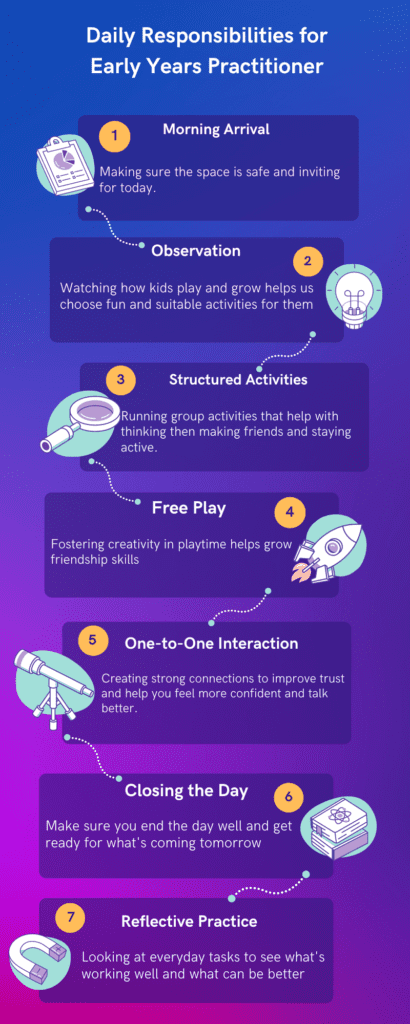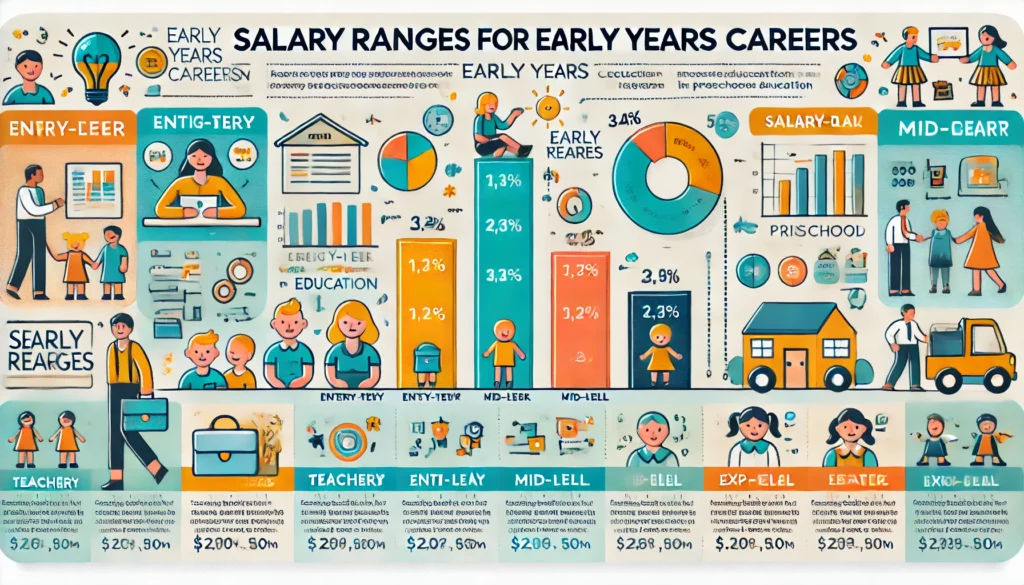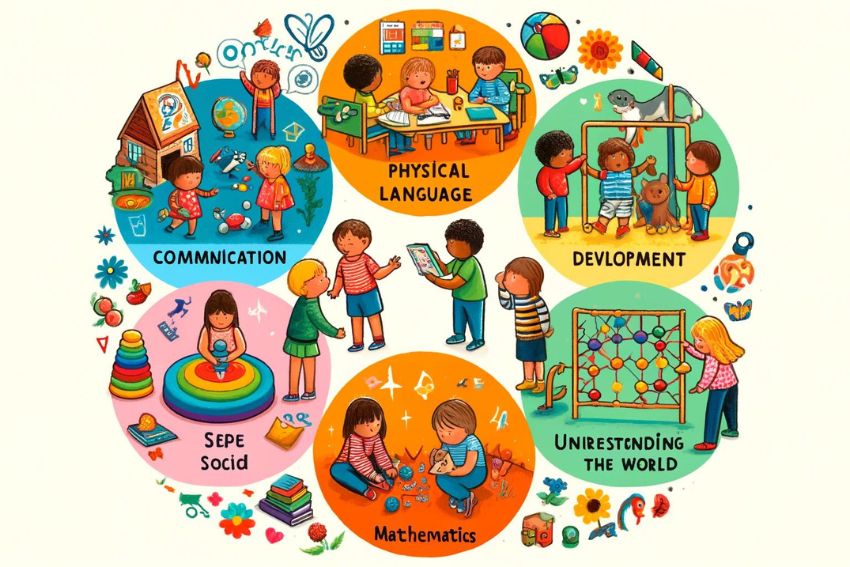Early Years Practitioner is caring expert focused on helping kids from birth to 6 years old grow and learn. More than 13,000 places like nurseries and kids’ centers across the UK make this field a big deal in education.

As of 2021, England had 330,000 paid workers in early years spots and 80% of them had reached Level 3 in their training. The government’s goal is to have every one of these educators reach at least this level of schooling.
The Role of an Early Years Practitioner
Firstly, an Early Years Practitioner takes care of kids, helping them grow and learn. Then, they work in places like nurseries and pre-schools or even as nannies or childminders at home. Their main job is to help children learn new things and develop through fun activities and play, making sure every child feels happy and safe.
Daily Responsibilities Include

- Morning Arrival – Making sure the space is safe and inviting for today.
- Observation – Watching how kids play and grow helps us choose fun and suitable activities for them.
- Structured Activities – Running group activities that help with thinking then making friends and staying active.
- Free Play – Fostering creativity in playtime helps grow friendship skills.
- One-to-One Interaction – Creating strong connections to improve trust and help you feel more confident and talk better.
- Closing the Day – Make sure you end the day well and get ready for what’s coming tomorrow.
- Reflective Practice – Looking at everyday tasks to see what’s working well and what can be better.
Importance of Early Years Practitioners
Early Years Practitioners are essential for several reasons
- Development – They work on developing kids’ physical, emotional, social, and thinking skills, helping them grow into well-balanced people.
- Inclusivity and Diversity – They create a welcoming space for everyone and making sure every child feels valued and included.
- Parental Engagement – Professionals work together with moms, dads and those who take care of kids to help meet what each child needs. This creates a strong team for the good of the child.
Personal Traits of a Successful Early Years Practitioner
To be great at working with young children, you need to have some key qualities
- Interest in Child Development – An interest in how kids grow and learn, and getting to watch it happen every day.
- Imagination and Creativity – Engaging kids by using their imagination during playtime and fun, creative tasks.
- Patience and Enthusiasm – Handling the needs of young kids with patience and excitement.
- Caring and Kind Nature – Being kind and understanding towards kids.
- Team Player – Working well with team members and people from different backgrounds.
Educational Pathways and Career Progression
If you want to work with kids as an Early Years Practitioner, firstly you have to finish a course that’s at least Level 3. Furthermore, there are tons of different classes you can take, like the CACHE Level 3 Award in Childcare and Education or the Early Years Level 3 Course. Moreover, You can take and do these courses in a regular college or even from home, which is great if you need to fit your studies around other things in your life.
Career Path of an Early Years Practitioner
There are many ways to become an Early Years Practitioner. For example, some people start by working in junior positions and study on the side. Others might study full-time first before getting a job. This is the career which has lots of chances to move up, like becoming a nursery manager or going further in school to be a teacher.
Early Years Salary Ranges
Working in Early Years, a Nursery Assistant might expect to earn about £15,277 annually on average. At the higher end of this field’s salary spectrum is the Nursery Manager job title with an estimated yearly pay averaging around £27,481. For those remunerated by hourly rates instead of annual salaries typically ranging from approximately 9.34£ per hour for people like Nursey Practitioners and going upwards till roughly 12.21£ each hour when dealing with Early Years Educators.

The mentioned income approximations are derived from near-about one thousand data units. 988 specifically collected directly over three years’ span. From valid resources such as employee entries themselves or former project listings found within Indeed portals.
Keep in mind though: these calculated averages ought not be considered unequivocal facts but rather broad appraisals given primarily based upon diverse third-party sources actively inputting into Indeed’s system-wide statistical pool; take them essentially just guiding outlines set down merely focusing general comparative purposes only . Also remember that particular jurisdictional laws could very well influence minimum wage levels—in which case double-checking actual stats via employer consultation becomes essential towards obtaining clearer personalized financial numbers for you individually!
Conclusion
Choosing to be an Early Years Practitioner is a great option for people who love helping young kids grow and learn. If you have the needed training and qualities, you can really make a difference in their early years, giving them a strong beginning. This job is not just rewarding it also gives you chances to improve and succeed in your career, as long as you’re committed to caring for and teaching little ones.
Visit Edumentors tutors for further steps and gain knowledge now!









